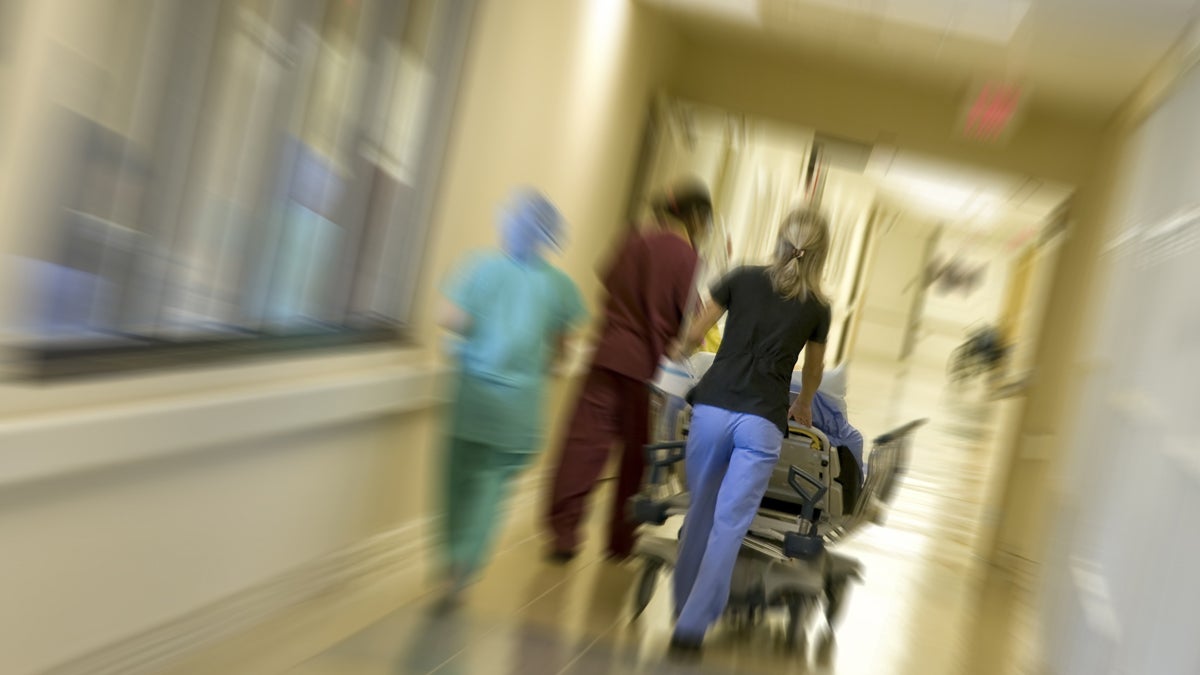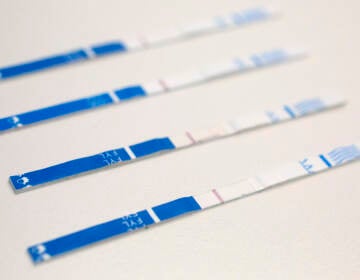New Temple project sees medical crisis as catalyst for drug treatment
 Photo via ShutterStock) " title="shutterstock_69519853" width="1" height="1"/>
Photo via ShutterStock) " title="shutterstock_69519853" width="1" height="1"/>
(Photo via ShutterStock)
Hospitals, especially in poor urban areas, tend to see a relatively small group of patients who are constantly in and out of their facility.
To provide better care for these patients, cut costs, and avoid penalties for high readmission rates, Temple University Hospital is trying a new approach: connecting at-risk patients to drug treatment.
“We have 80 patients that account for 400 admissions a year, 80 patients, that’s huge,” said Steven Carson of Temple’s Institute for Population Health. After crunching the data on their regular patients, he said, it became clear that about 20 percent have a substance abuse problem that impacts their overall health. “So they are in and out of our emergency room, they are sicker with their chronic conditions.”
Temple already has health care outreach workers who try to keep track of patients after discharge, but outreach workers report that it’s often difficult to stay in touch with patients, especially when substance abuse is one of the issues. They are hard to find, changing addresses or phone numbers.
The research project adds a drug treatment social worker and a trained peer counselor who is in recovery to serve this population.
“So, for example, it might be somebody who is diabetic but who also is a heavy drinker,” said Adam Brooks with Philadelphia’s Treatment Research Institute, Temple’s partner in this project. “Their inability to control their drinking is sending their diabetes cycling back and forth.”
With this project, he said, a medical crisis could become a moment of opportunity where a patient enters treatment.
“What we expect to happen is that the client will probably prioritize handling their medical issue at first, but we want to build that relationship so that as things quiet down, we can get them thinking about going into treatment,” Brooks said.
The hope is that the peer counselor will be able to forge a bond with the patient.
“Connecting with people who have been in recovery before sometimes cements that relationship, and then keeps the people traveling together until that person can help the patient get into treatment,” he said.
Temple administrators say that the program is aimed at providing better patient outcomes, but it also has a big financial angle.
Last year, under the Affordable Care Act, Temple was penalized for high readmission rates in the form of a Medicare payment reduction. This cost the hospital hundreds of thousands of dollars, according to administrators. Over 2,000 other hospitals in the US were penalized for high readmission rates as well.
The Temple study will enroll about 200 patients — half of them will receive the new intervention, the other half will be accompanied by Temple’s usual outreach team. Enrollment will begin next month.
WHYY is your source for fact-based, in-depth journalism and information. As a nonprofit organization, we rely on financial support from readers like you. Please give today.





